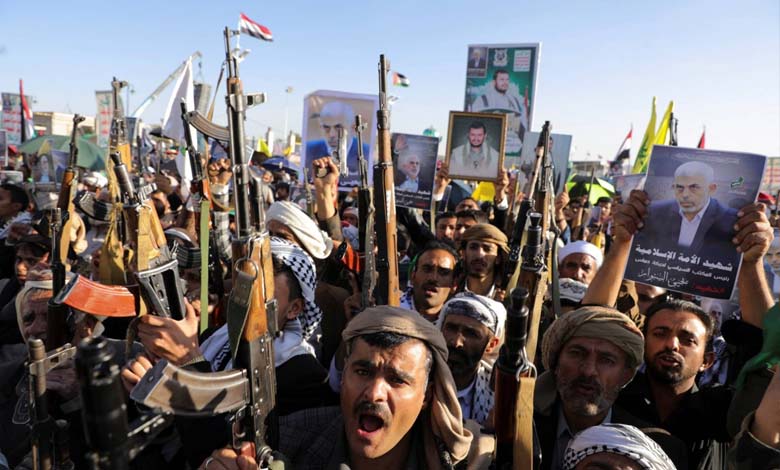“Looting of Property”: A Houthi Official Sets Himself on Fire in Protest

The Houthis‘ looting of property is not limited to Yemeni citizens unable to defend their rights. It now extends to members and leaders of the militia itself.
-
Growing concerns about the Houthis turning Yemen into a battleground for Iran’s wars… Details
-
The Houthis’ Catastrophe Enters Its Second Decade: A Fireball Burning Yemen
A shocking incident, in which a former Houthi official set himself on fire, illustrates the extent of abuses committed by this terrorist militia, particularly in seizing lands and properties from citizens.
In the heart of Al-Sabine Square in the Yemeni capital Sanaa, and amidst crowds mobilized by the militia, a Houthi supervisor set himself on fire to protest the confiscation of his property by a relative of the militia leader, Abdul-Malik al-Houthi.
Despite his services to the Houthis‘ agenda in their war against Yemenis, this supervisor could not escape the militia’s looting practices, similar to thousands of citizens whose lands and properties have been seized over the years.
-
Terrorism: A Product of the Muslim Brotherhood and the Houthis… Yemenis React to Major Massacres in the South
-
The Brotherhood Strengthens Its Relationship with the Houthis… What’s New?
The Houthi Supervisor
The supervisor, Abdelghani Daif Sarih Al-Razahi, set himself on fire in Al-Sabine Square on Friday after dousing himself with gasoline. He stated that his act was a protest against the confiscation of his property by Abdelmajid Al-Houthi, who claims to be the head of the Waqf Authority in Sanaa.
Abdelmajid Al-Houthi, a close relative of the militia leader, has led a policy of looting, theft, and violence since the Houthis took control of Sanaa, appointing the leader’s close allies to top positions.
In a video circulated on social media, Al-Razahi said that all his attempts to reclaim his property from Abdelmajid Al-Houthi had failed, leading him to set himself on fire in front of militia crowds.
-
The Houthis and Somali al- Shabaab: “The Devil’s Alliance” Reaches the Horn of Africa
-
In a surprising decision, the Houthis threaten to target Saudi Arabia
He sustained serious injuries before being rescued by those at the scene.
Property Looting
In 2021, the militia established a government body called the Waqf Authority to seize state properties, including real estate and financial assets. They appointed Abdelmajid Abdelrahman Al-Houthi, a cousin of the militia leader, to head the authority, granting him unchecked power.
The Houthi militia has not only imposed taxes and extorted merchants in areas under its control to finance its war but has also legitimized the seizure of assets through illegitimate laws.
-
Reopening roads reveals the false battles of the Houthis and the Brotherhood… Details
-
Yemeni Confirmation: Peace with the Houthis is no longer feasible
Estimates suggest that more than 30% of Sanaa’s land belongs to waqfs, fueling the Houthis‘ appetite for what observers call “the largest organized looting operation in Yemen’s history.”
Abdelmajid Al-Houthi claims that Yemen ranks first among Islamic countries in terms of waqf properties, asserting that one-third of the land in every province, city, or village belongs to these religious endowments controlled by the militia.












